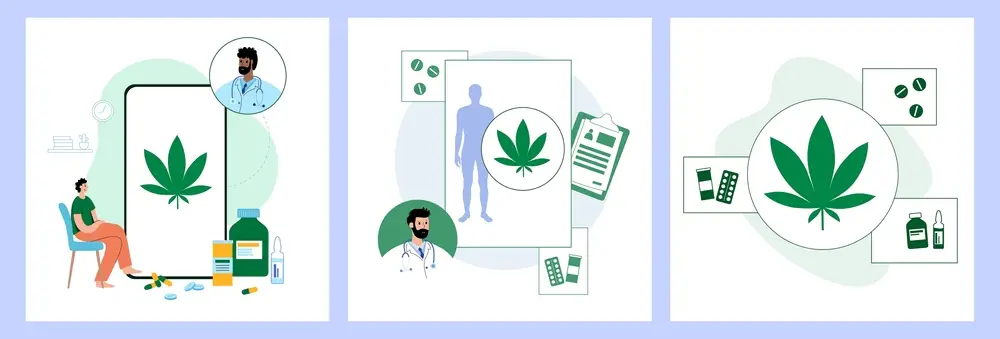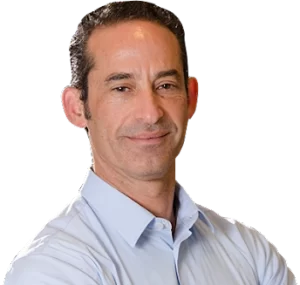Welcome to our all-encompassing guide to medical cannabis use in Illinois, frequently asked questions (FAQs), tips, and trusted resources.
As a trusted source in the industry, we are dedicated to providing you with accurate, up-to-date information to make your journey as smooth as possible. This overview will answer the most common FAQs about medical cannabis in Illinois and pave the way for you or your loved ones to access the relief you deserve.
Steps To Get Your Illinois Marijuana Card

Step 1: Determine Your Eligibility
Medical cannabis is effective in treating a variety of medical conditions.
Some approved conditions for medical cannabis use in Illinois are:
- Chronic pain
- Multiple sclerosis
- Epilepsy
- Glaucoma
- Crohn’s disease
- Cancer
- Anxiety disorders
- Post-traumatic stress disorder (PTSD)
- Parkinson’s disease
- Alzheimer’s disease
Note: Here is a complete list of Illinois qualifying conditions
Step 2: Consult a Healthcare Professional
Before applying for a medical cannabis card, you must consult with a licensed healthcare professional in Illinois who will evaluate your condition and determine if medical cannabis is an appropriate treatment option.
Who is considered a qualified licensed healthcare professional?
- A physician
- An advanced practice registered nurse (APRN)
- Or a physician assistant (PA)

Step 4: Complete the Application Process
Once you have your written certification, you can begin the application process. You’ll need to gather the following documentation:
- Proof of residency: Provide two documents proving Illinois residency, such as utility bills, bank statements, or a voter registration card.
- Proof of age and identity: A valid Illinois driver’s license or state ID card.
- A recent 2×2-inch passport-style photo: This photo will be used for your medical cannabis card.
Gather your documentation and visit the Illinois Medical Cannabis Patient Program (MCPP) website to complete the online application. Create an account, fill out the necessary forms, submit all required documentation, and pay the fee.
Step 5: Pay the Application Fee
The application fee for your medical cannabis card depends on the duration of your card.
Qualified Patient Application Fee
- 1-year card: $50
- 2-year card: $100
- 3-year card: $125
Reduced Fee Qualified Patient Application Fee
- 1-year card: $25
- 2-year card: $50
- 3-year card: $75
Minor Qualified Patient Application Fee
- 1-year card: $50
- 2-year card: $100
- 3-year card: $125
Note: Reduced fees are available for veterans and individuals enrolled in federal Social Security Disability Income (SSDI) or Supplemental Security Income (SSI) programs.
Step 6: Await Approval
After you submit your doctor’s certification and pay the fee, you will receive a “provisional” or temporary card via email. That provisional card will allow you to purchase cannabis products right away at reduced tax rates.
Once the department approves your application, your account will be marked “active.” That decision can take up to 90 days. It is usually much quicker and can even be done on the same day. Click the link here to apply for the same medical cannabis cards.
The temporary medical card will be accepted at the dispensary. Plastic cards aren’t issued any longer, and you won’t have to pay the $25 fee that it used to cost either.

FAQs
A: Medical cannabis uses the cannabis plant or its extracts to treat various medical conditions. The plant contains over 100 compounds, known as cannabinoids, that have been found to have medicinal properties. The two main cannabinoids are tetrahydrocannabinol (THC) and cannabidiol (CBD).
A: The legality of medical cannabis varies from state to state. In some states, medical cannabis is legal, while in others it is illegal. In states where medical cannabis is legal, patients must obtain a medical cannabis card from a licensed physician to access the treatment. Marijuana is still illegal at the federal level.
A: 18 years old, and parental consent isn't required. Recreational adult use programs require people to be 21 and over.
A: Yes, registered medical cannabis patients are allowed to grow up to five (5) plants at a time for personal use.
A: If your application is denied, you have the right to appeal the decision. You must submit a written request for review within 15 days of receiving your denial letter.
A: Once you have consulted a healthcare provider and been reapproved, you can renew your medical cannabis card by submitting a renewal application online with the required documentation. Pay the fee on the MCPP website. Begin the renewal process 45-60 days before your card expires to avoid any lapse in access.
A: Medical cannabis could be administered in the following ways:
- Smoking
- Vaporizing
- Edibles (such as gummies or brownies)
- Oils
- Tinctures
The method of administration will depend on the patient's preference and the condition being treated.
A: Yes, you can designate a caregiver to assist you with the use, possession, or cultivation of cannabis. Caregivers must be at least 21 years old, have no felony convictions, complete a separate application, and be approved. Caregivers are subject to an application fee and background check.
A: Medical cannabis is generally deemed safe when administered under the guidance of a licensed physician. Nonetheless, similar to any medication, it may elicit side effects. The most prevalent side effects of medical cannabis are the following:
- Dry mouth
- Dizziness
- Fatigue
- Impaired memory and concentration
- Increased heart rate
A: As stated in the program, terminal illness denotes an individual diagnosed with a life expectancy of six (6) months or less. Therefore, the medical marijuana registry identification card of such an individual is valid for six months, and they are not mandated to pay any application fee.
A: The following are the requirements for a terminal patient:
- Residency in the state of Illinois when applying and participating in the program.
- Terminal illness diagnosis and a life expectancy of less than six (6) months
- Complete and submit an online application.
- Healthcare providers must complete the online certification confirming a terminal diagnosis.
- An in-person physical exam must occur within 90 days of applying.
- The participant cannot hold a bus permit or commercial driver’s license and can't be on active duty as:
- Law enforcement officer
- Correctional officer
- Correctional probation officer
- Firefighter.
Terminal patients can select up to three (3) caregivers.
Terminal Illness Resources:
A: Yes.
Please note, Ashley’s Law makes it possible for medical cannabis use by minor registered patients under the age of 18 while attending school once they have been approved for their medical marijuana card.
A: Yes.
Please note, Ashley’s Law makes it possible for medical cannabis use by minor registered patients under the age of 18 while attending school once they have been approved for their medical marijuana card.
Here is what you need to know about minors obtaining a medical marijuana card:
In Illinois, the administration of medical cannabis to a minor qualifying patient is regulated by strict protocols and guidelines.
A minor qualifying patient is an individual under 18 who endures a debilitating medical condition. The administration of medical cannabis to minor-qualifying patients in Illinois is governed by strict rules and guidelines.
- As outlined by the Compassionate Use of Medical Cannabis Program Act, minor qualifying patients must obtain certification from at least two physicians, attesting that medical cannabis is the most effective treatment for their debilitating condition. Moreover, these patients must have a designated caregiver who is at least 21 years of age and has undergone a background check for criminal records.
- Minors qualifying as patients are prohibited from cultivating cannabis plants and may solely procure medical cannabis from a state-licensed registered dispensary.
It is imperative to acknowledge that administering medical cannabis to minor qualifying patients remains a contentious issue, and some physicians may not be willing to endorse its use.
Parents or guardians should undertake research, learn about the potential benefits and risks of utilizing medical cannabis as a treatment option for their child's medical condition, and seek advice from multiple physicians before pursuing this alternative.
To apply for a medical cannabis card for a minor qualifying patient in Illinois, the following steps must be taken:
- Obtain written certification from two physicians that medical cannabis is the most effective treatment option for the minor qualifying patient's debilitating condition.
- Fill out the online application form and pay the required fee.
- Designate a caregiver who is at least 21 years old and has undergone a criminal background check.
- Wait for the application to be approved. This process can take up to 30 days.
- Once the application is approved, the medical cannabis card will be mailed to the designated caregiver. The card must be presented at the registered dispensary to purchase medical cannabis.
- Minor qualifying patients do not need to submit a photo.
Resources and Instructions for:
It is essential for parents or guardians to thoroughly research the possible benefits and risks of using medical cannabis for their child's medical condition and to speak with multiple physicians before pursuing this treatment option.
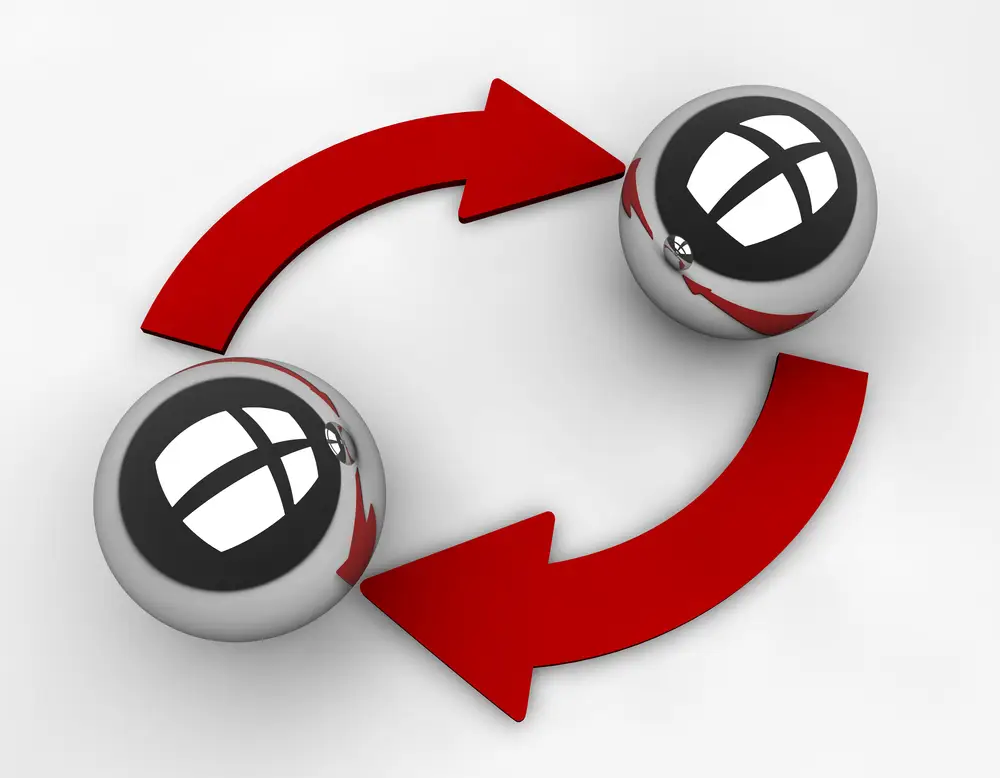
Does the Illinois Medical Cannabis Program have reciprocity with other states?
The rules and regulations regarding medical cannabis can be intricate and burdensome, particularly those concerning reciprocity among various states. “Medical Card Reciprocity” means the acknowledgment and acceptance of medical cannabis cards from other states. Essentially, suppose a patient possesses a medical cannabis card from one state. In that case, they may have the option to employ it to procure medical cannabis in another state that has a comparable program.
The notion of reciprocity can prove advantageous for patients who must travel to other states for medical treatment or who relocate to a different state but still require access to medical cannabis. However, it is crucial to recognize that not all states have reciprocity agreements, and even in those that do, the regulations can differ substantially.
Illinois currently has no reciprocity agreement with any other state for medical cannabis and does not accept out-of-state cards; some other states will, however, accept an Illinois medical card. This means that patients from other states cannot use their medical cannabis cards to purchase cannabis in Illinois.
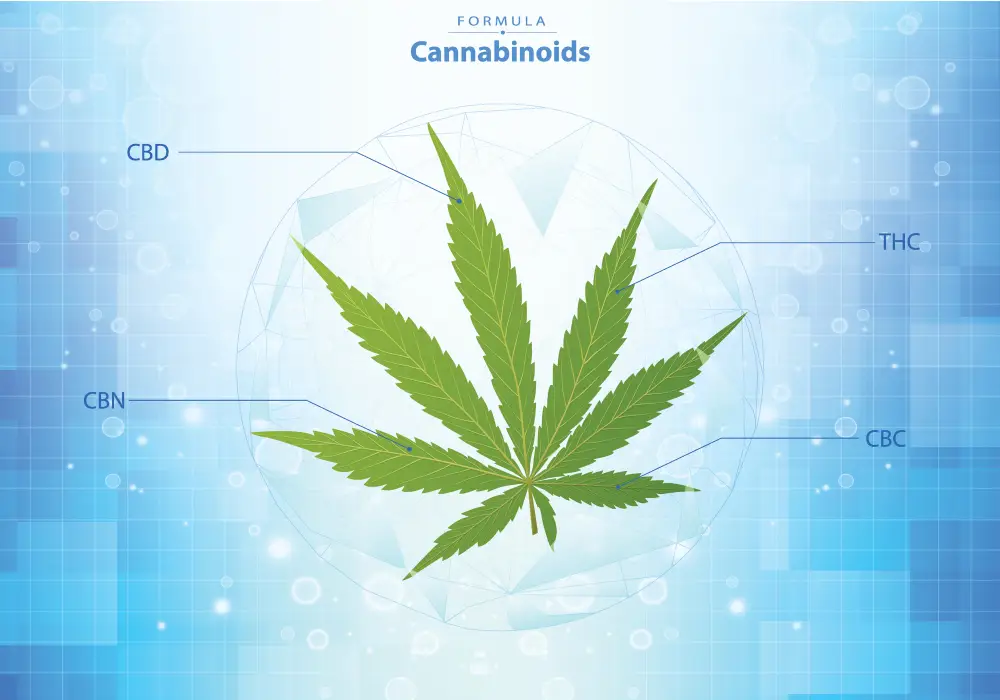
Illinois residents can use their medical marijuana card in these states:
- Arkansas
- Hawaii
- Maine
- Michigan
- Nevada
- Puerto Rico (P.R.)
- Utah
- District of Columbia (D.C.)
Note: Some states that accept Illinois medical marijuana cards may require some prerequisites.
The absence of reciprocity can present difficulties for patients who must travel out of state for medical treatment or who relocate to Illinois from another state with a medical cannabis program. It can also be an obstacle for patients who reside near the Illinois border. They could benefit from medical cannabis in Illinois but cannot gain access due to residency mandates.
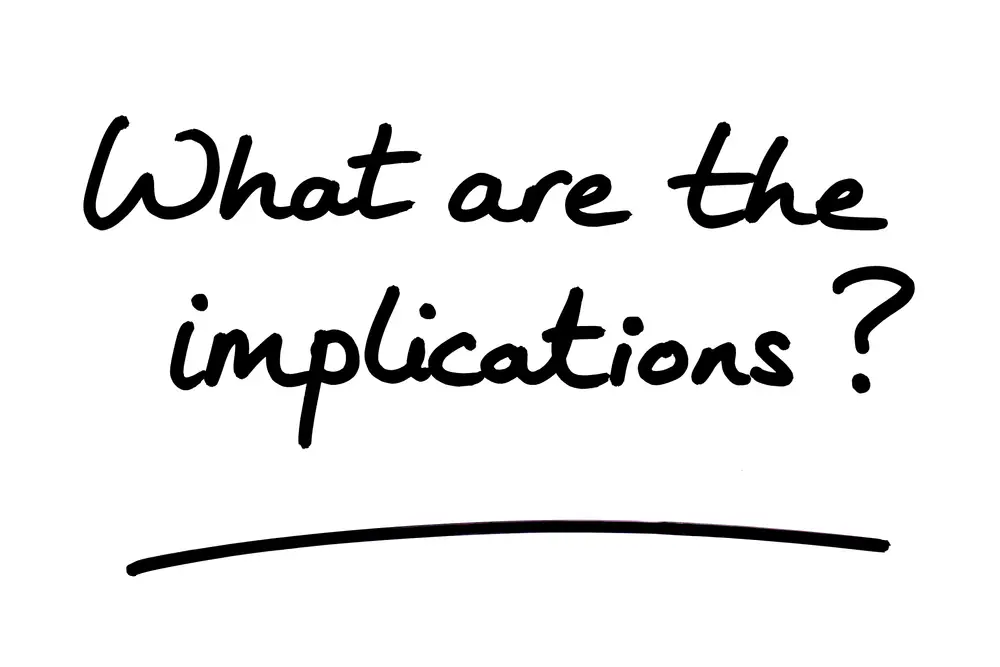
What are the benefits of reciprocity?
Reciprocity can offer numerous advantages for patients, such as:
- Expanding their access to medical cannabis and allowing them to travel without fear of legal consequences. However, it is also essential to acknowledge the possible drawbacks.
Drawbacks of reciprocity
- One possible disadvantage is that reciprocity can result in inconsistencies in regulations and quality control. For example, various states may implement distinct criteria for testing and labeling cannabis products, leading to patients’ bewilderment and potential health hazards.
- Reciprocity could lead to increased demand for medical cannabis in certain states, which could strain the supply chain and result in shortages and price increases.
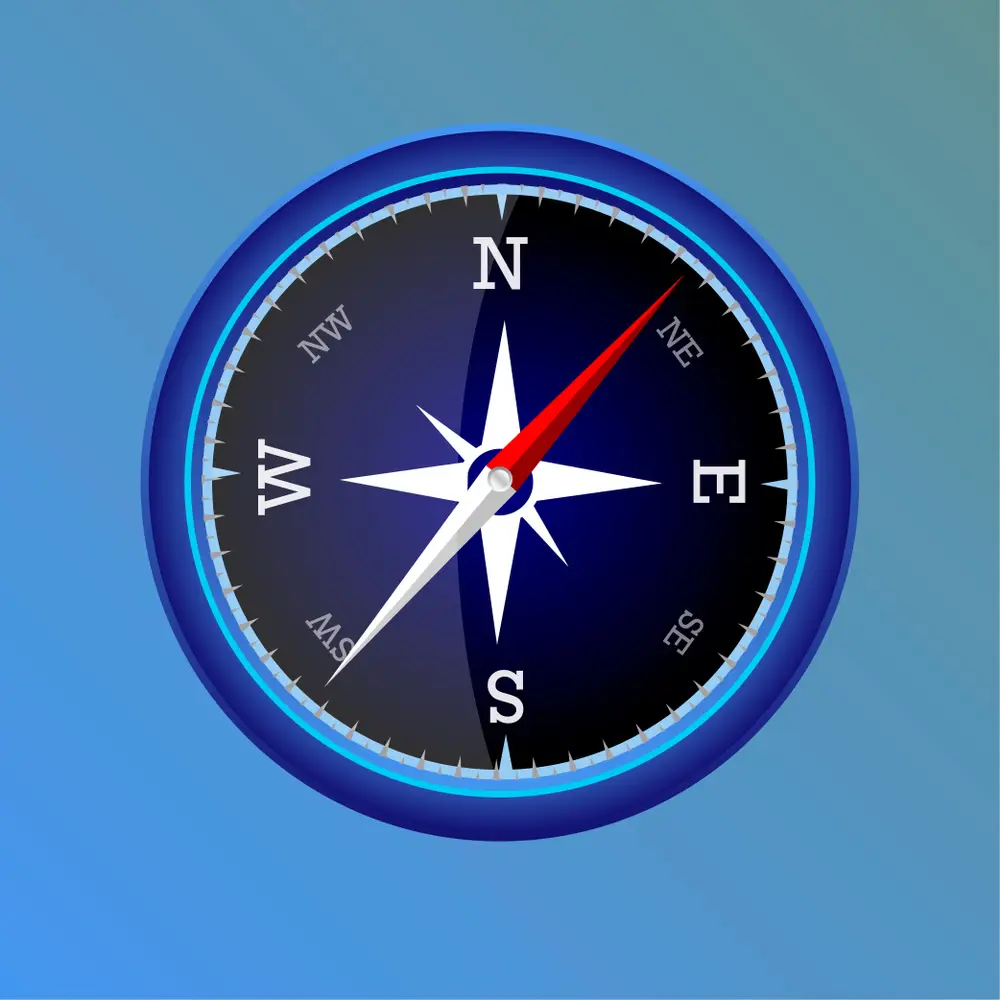
Navigating Reciprocity in Medical Cannabis Laws
For patients who must journey to other states or have recently relocated, an alternative is to investigate the regulations in every state and ascertain if a reciprocity agreement is established. Patients can also contact the medical cannabis programs in each state for additional information and directions.
Another alternative is to collaborate with a medical cannabis physician or an advocacy group for medical cannabis. These specialists can provide guidance and assistance for patients maneuvering through the intricate maze of regulations and aid them in obtaining medical cannabis in different states.
Reciprocity seems like a common sense notion in medical cannabis laws, as it can enhance the accessibility of medical cannabis for patients who require it, but unfortunately, it has to be adopted by other states.

Need help applying for your cannabis card?
Are you currently struggling with finalizing your application for a medical cannabis registry card and needing some much-needed assistance? Don’t worry, as the Illinois Department of Public Health has partnered up with a plethora of certified local health departments (LHD) to cater to the needs of qualifying patients seeking aid with the completion of their application forms, including renewals and extensions, for the state’s Medical Cannabis Registry Program.
The assistance comes at no cost, although it’s worth mentioning that the applicant is responsible for bearing the expenses related to registration fees. In addition, the LHDs have been thoroughly vetted and authorized, ensuring their legitimacy and reliability in providing top-tier guidance to patients navigating the labyrinthine terrain of cannabis-related applications.
With a keen focus on providing impeccable service to patients, the Illinois local health departments offer guidance and support at every step, ensuring a smooth and hassle-free application process. Don’t hesitate to reach out to the LHDs if you need assistance, as they’re more than willing to lend a helping hand to anyone who qualifies.

What do veterans have to do to get a medical cannabis card?
- Veterans obtaining care at a VA facility can apply for Medical Cannabis Patient Program (MCPP).
- No physician-written certification is required for MCPP.
- Need to provide medical records from a VA facility for the last 12 months.
- IDPH will review records to verify qualifying medical conditions and continuous medical care at the VA facility for the past 12 months.
- If veterans are not receiving ongoing medical treatment from a U.S. Department of Veterans Affairs facility, they must obtain an online certification from a healthcare professional.
- Veterans who have received an honorable or general discharge and are qualified for VA services and benefits can receive a discounted application fee for the Medical Cannabis Patient Program. To apply, the veteran must include a copy of their DD-214, which displays their dates of service and indicates that their discharge was anything other than dishonorable.
Veterans can obtain medical records online here.
How to get a Provisional Letter or Medical Marijuana Print Card?
Free cannabis card application help and medical cannabis registry card assistance are available.
Here is a list of Illinois local health departments to help you complete your application for a medical cannabis registry card.
DeKalb County Health Department
2550 N. Annie Glidden Rd
DeKalb, IL 60115
MCPP Program – (815)748-2489
Email: [email protected]
Douglas County Health Department
1250 E. U.S. Highway 36
Tuscola, IL 61953
April Kauffman – (217)253-4137 (ext. 1203)
Email: [email protected]
Franklin-Williamson Bi-County Health Department
8160 Express Dr.
Marion, IL 60957
Kevin Kaytor – (618) 993-8111
Email: [email protected]
Fulton County Health Department
700 East Oak St.
Canton, IL 61520
Katie Lynn – (309)647-1134
Email: [email protected]
Kendall County Health Department
811 West John St.
Yorkville, IL 60560
Kendall County Health Dept – (630)553-9100
Kendall County Health Department – (630)553-9100
Lee County Health Department
309 South Galena
Suite 100
Dixon, IL 61021
Becky Mooris – (815)284-3371
Email: [email protected]
Logan County Health Department
- O. Box 508
109 3rd St.
Lincoln, IL 62656-0508
Kara A. Davis – (217) 735-2317
Email: [email protected]
Madison County Health Department
101 East Edwardsville Rd.,
Wood River, IL 62095
Toni Corona – (618)692-8954
Email: [email protected]
Ogle County Health Department
907 West Pines Rd.
Oregon, IL 61061
Kyle Auman – (815)562-6976
Email: [email protected]
Rock Island County Health Department
2112 25th Ave
Rock Island, IL 61201
Brenda Cook – 309-558-2864
Email: [email protected]
Winnebago County Health Department
- O. Box 4009
555 N. Court Street
Rockford, IL 61110-0509
Winnebago County Health Dept – (815)720-4000
Email: [email protected]
Navigating Dispensaries and Medical Cannabis Products
Once you have your medical cannabis card, you’ll need to find a licensed dispensary to purchase your medicine. In Illinois, there are numerous dispensaries throughout the state, making it easy to find one near you. To locate a dispensary, visit the Illinois Department of Financial and Professional Regulation website, which maintains a comprehensive list of licensed dispensaries.
Tips for Visiting a Dispensary
- Bring your medical cannabis card and a valid ID: You’ll need both of these documents to enter the dispensary and make purchases.
- Do your research: Familiarize yourself with different strains, products, and consumption methods to better understand what might work best for your condition.
- Ask questions: Don’t be afraid to ask the knowledgeable staff, often referred to as “budtenders,” for guidance or recommendations based on your specific needs
Understanding Medical Cannabis Products
Medical cannabis comes in various forms, allowing patients to choose the most suitable option for their needs. Some common product types include:
- Flower: The traditional form of cannabis, which can be smoked or vaporized.
- Edibles: Cannabis-infused food products, such as gummies, cookies, and chocolates.
- Tinctures: Liquid cannabis extracts that can be administered sublingually (under the tongue) or added to food and beverages.
- Topicals: Creams, lotions, and balms infused with cannabis for localized relief.
- Concentrates: Highly potent cannabis extracts, such as wax, shatter, or oil, that can be vaporized or ingested.
It’s essential to start with a low dose and gradually increase it until you achieve the desired effects. This approach, often referred to as “start low and go slow,” helps you determine the optimal dosage for your needs while minimizing potential side effects.
Stay Compliant: Medical Cannabis Laws in Illinois
Here are a few things that will keep you out of trouble:
- Do not consume cannabis in public places (parks, sidewalks, parks, or vehicles).
- Do not operate or drive motor vehicles (cars, boats, motorcycles, or aircraft) while under the influence of cannabis.
- Do not travel across state lines with medical cannabis products. (It is a federal offense.)
- Have your medical cannabis card on you at all times when you are in possession of medical cannabis products.
All medical cannabis card holders are required to follow Illinois laws and regulations.
Before using medical cannabis as a therapeutic alternative, it is crucial to consult with a physician to ascertain if it is a secure and suitable treatment option.
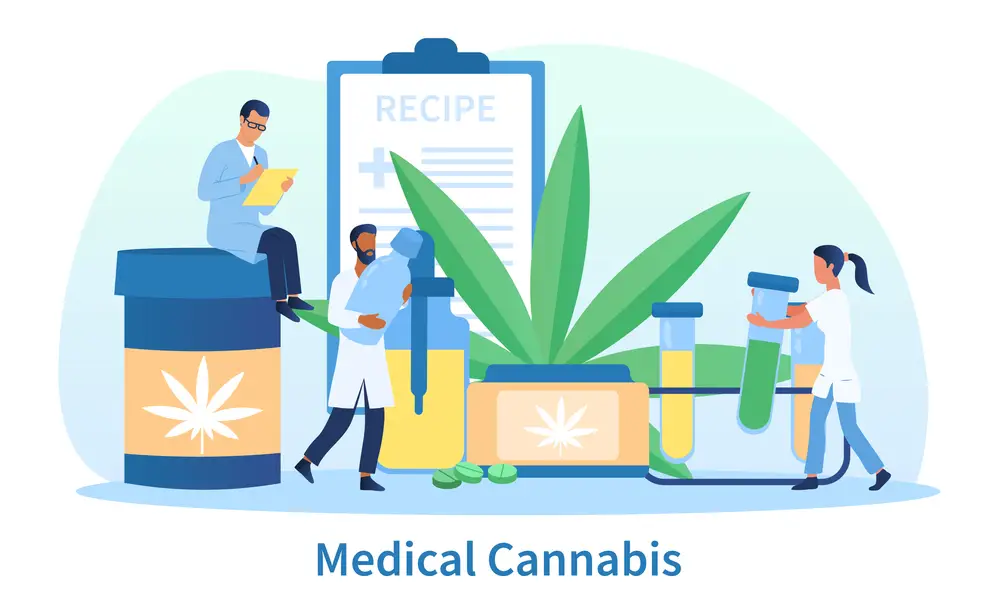
Embrace a Better Quality of Life
Medical cannabis holds the potential to be a treatment option for various medical conditions. If you are contemplating using medical cannabis as a medicine to treat your medical condition, discuss the benefits and contraindications with a licensed healthcare provider to establish whether it is a viable option for you.
To be deemed eligible for the program, patients must possess one of the qualifying medical conditions outlined by the state. Patients must be approved by a qualified healthcare provider that is registered with the Illinois Department of Public Health. Once approved, patients can grow, use, or purchase medical cannabis from licensed dispensaries within the state.
Your health and well-being are our top priorities, and we’re here to help you navigate the world of medical cannabis in Illinois. We hope this helps address some FAQs about medical cannabis and equips you with the knowledge necessary to make an informed decision.


